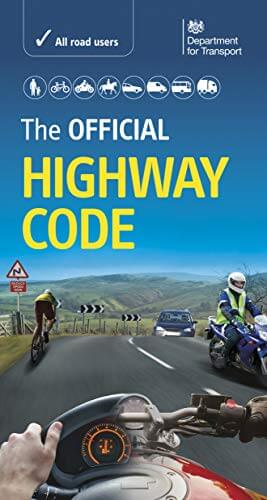Driving habits can be good and bad. The bad ones usually start to appear as soon as we have passed our learner test. Learning new skills can often help improve the bad habits and refine the good ones.
Becoming a driving instructor can influence habits in two ways;
- Improve your own habits and skills
- Pass on skills and discipline to new drivers
Learning new skills is extremely rewarding particularly if you have been driving a while. You may not realise how many little bits you had forgotten or were even aware of in the first place. There will always be incidents that you come across on the road which cause displeasure and learning to deal with this can help improve driver temperament and restraint.
Some of the bad habits that cause other motorists to look to the sky in disgust
- Tailgating – Rule 126 – allow at least a two-second gap between you and the vehicle in front on roads carrying faster-moving traffic and in tunnels where visibility is reduced. The gap should be at least doubled on wet roads and increased still further on icy roads
- Speeding – Rule 124 – You MUST NOT exceed the maximum speed limits for the road and for your vehicle. The presence of street lights generally means that there is a 30 mph (48 km/h) speed limit unless otherwise specified.
Speed limits appear in signs with red circles giving drivers orders. There is always a reason for a limit on a road even if it is not immediately obvious. You are twice as likely to kill someone if you hit them at 35mph than 30mph. - Use of mobile phone – Rule 149 – You MUST exercise proper control of your vehicle at all times. You MUST NOTuse a hand-held mobile phone, or similar device, when driving or when supervising a learner driver, except to call 999 or 112 in a genuine emergency when it is unsafe or impractical to stop. Never use a hand-held microphone when driving. Using hands-free equipment is also likely to distract your attention from the road. It is far safer not to use any telephone while you are driving or riding – find a safe place to stop first or use the voicemail facility and listen to messages later.
- Drink or Drug Driving – Rule 95 – Do not drink and drive as it will seriously affect your judgement and abilities.In England and Wales you MUST NOT drive with a breath alcohol level higher than 35 microgrammes/100 millilitres of breath or a blood alcohol level of more than 80 milligrammes/100 millilitres of blood.
- Lack of signalling – Rule 103 – Signals warn and inform other road users, including pedestrians, of your intended actions.
Arrive alive.
The time a journey takes is totally out of our control as drivers. If you have left your starting point too late, driving fast and or erratically will not allow you to make up lost time. The saying goes, it is better to arrive late than not at all. Teaching students this as an instructor can help improve habits of new drivers on the road as our network gets busier each year.
Show consideration.
Rule 147 is all too easily forgotten, yet is there in black and white for us all to follow.
Be considerate. Be careful of and considerate towards all types of road users, especially those requiring extra care.
- you MUST NOT throw anything out of a vehicle; for example, food or food packaging, cigarette ends, cans, paper or carrier bags. This can endanger other road users, particularly motorcyclists and cyclists.
- try to be understanding if other road users cause problems; they may be inexperienced or not know the area well.
- be patient; remember that anyone can make a mistake.
- do not allow yourself to become agitated or involved if someone is behaving badly on the road. This will only make the situation worse. Pull over, calm down and, when you feel relaxed, continue your journey.
- slow down and hold back if a road user pulls out into your path at a junction. Allow them to get clear. Do not over-react by driving too close behind to intimidate them.
Rule 204 also states
The most vulnerable road users are pedestrians, cyclists, motorcyclists and horse riders. It is particularly important to be aware of children, older and disabled people, and learner and inexperienced drivers and riders.
Learning new skills.
Reminding ourselves of old knowledge once forgotten and showing more restraint can collectively help improve everyones driving habits. As an instructor, the path to retaining all the information and passing it through to your students can take a few years to master. Our overall goal should be to help improve habits and skills of everyone we share the road with whilst remembering it is not our job to enforce these rules.
